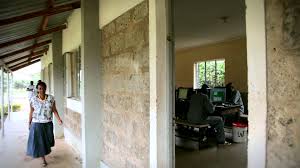Government Grants
Business Grants
Home Owner Programs
Federal Programs
About Us
Facilitation Skills for Cognitive Behavioral Programs in Corrections
Perhaps no other intervention has attracted more attention across the criminal justice system than cognitivebehavioral therapy (CBT).
First widely used in the latter half of the 20th century, as large numbers of peoplewith mental illness were deinstitutionalized and treated in community settings, CBT has since found its wayinto nearly every aspect of the justice system, often supplementing, or displacing other programs andinterventions.
CBT assumes that most people can become conscious of their own thoughts and behaviorsand then make positive changes to them.
A person's thoughts are often the result of experience, and behavioris often influenced and prompted by these thoughts.
In addition, thoughts may sometimes become distortedand fail to reflect reality accurately.
Practitioners today use CBT to reduce recidivism among adults andjuveniles, help victims deal with the aftermath of crimes, and address substance abuse, depression, violence,and other problematic behavior.
CBT programs help individuals in corrections improve their social skills,means-ends problem solving, critical reasoning, moral reasoning, cognitive style, self-control, impulsemanagement, and self-efficacy.
Effective facilitators are crucial to assisting to make these improvementsand reductions.
The ideal skills for group facilitators include empathy, knowledge of facilitation/teachingtechniques, understanding group processes and interpersonal interactions, the ability to control a group ofjustice-involved adults and at-risk youth, and the ability to challenge individuals through non-coercivemeans.
Almost without exception, studies of cognitive behavioral programs point to proper training as a keyfactor in achieving desired program outcomes.
Training is the starting point for successful facilitators.
First widely used in the latter half of the 20th century, as large numbers of peoplewith mental illness were deinstitutionalized and treated in community settings, CBT has since found its wayinto nearly every aspect of the justice system, often supplementing, or displacing other programs andinterventions.
CBT assumes that most people can become conscious of their own thoughts and behaviorsand then make positive changes to them.
A person's thoughts are often the result of experience, and behavioris often influenced and prompted by these thoughts.
In addition, thoughts may sometimes become distortedand fail to reflect reality accurately.
Practitioners today use CBT to reduce recidivism among adults andjuveniles, help victims deal with the aftermath of crimes, and address substance abuse, depression, violence,and other problematic behavior.
CBT programs help individuals in corrections improve their social skills,means-ends problem solving, critical reasoning, moral reasoning, cognitive style, self-control, impulsemanagement, and self-efficacy.
Effective facilitators are crucial to assisting to make these improvementsand reductions.
The ideal skills for group facilitators include empathy, knowledge of facilitation/teachingtechniques, understanding group processes and interpersonal interactions, the ability to control a group ofjustice-involved adults and at-risk youth, and the ability to challenge individuals through non-coercivemeans.
Almost without exception, studies of cognitive behavioral programs point to proper training as a keyfactor in achieving desired program outcomes.
Training is the starting point for successful facilitators.
Obtain Full Opportunity Text:
NIC Website
Additional Information of Eligibility:
NIC invites applications from nonprofit organizations (including faith-based, community, and tribal organizations), for-profit organizations (including tribal for-profit organizations), and institutions of higher education (including tribal institutions of higher education).
Recipients, including for-profit organizations, must agree to waive any profit or fee for services.
Foreign governments, international organizations, and non-governmental international organizations/institutions are not eligible to apply.
Proof of 501(c) (3) status as determined by the Internal Revenue Service or an authorizing tribal resolution is required.
NIC welcomes applications that involve two or more entities; however, one eligible entity must be the applicant and the others must be proposed as subrecipients.
The applicant must be the entity with primary responsibility for administering the funding and managing the entire program.
Only one (1) application will be accepted from a submitting organization.
Full Opportunity Web Address:
http://www.acf.hhs.gov/grants/open/foa/view/HHS-2011-ACF-OHS-CH-R05-0252
Contact:
Agency Email Description:
Form and Application information.
Agency Email:
Date Posted:
2024-08-16
Application Due Date:
Archive Date:
2024-11-14
Social Entrepreneurship
Spotlight
Digbeth: The New Social Enterprise Quarter

Digbeth in Birmingham, England has been appointed as the new social enterprise quarter. Social enterprises are sprouting up in the area, comprising of 57 of these businesses flanked between High Gate and Hurst Street.

